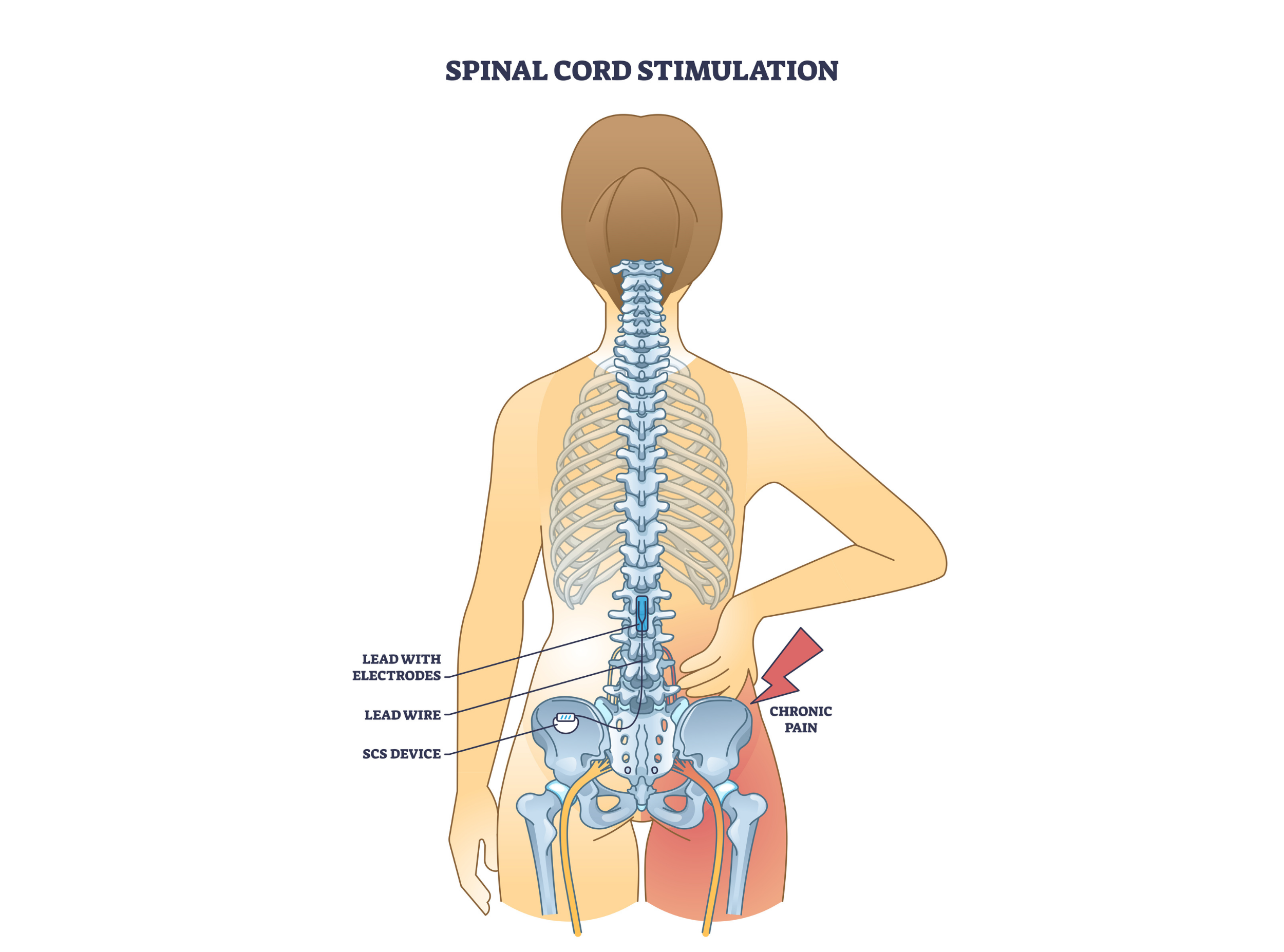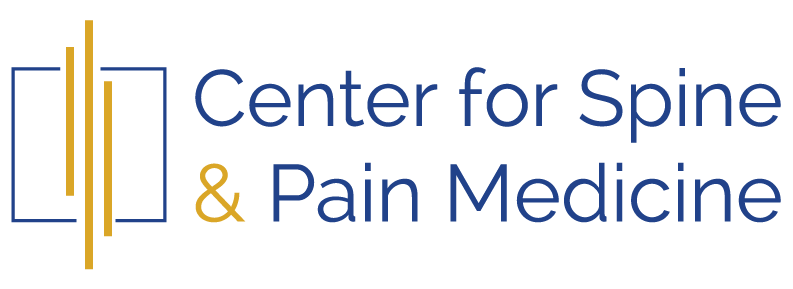
Spinal Cord Stimulation: What It Is and What to Expect
In this blog, we’ll break down what spinal cord stimulation is, how it works, and what you can expect if you’re considering it.

What Is Spinal Cord Stimulation?
A spinal cord stimulator is a small, implantable device that helps manage chronic pain. Think of it like a “pain pacemaker.” Instead of regulating your heartbeat, it works by sending gentle electrical pulses to the spinal cord.
These pulses interfere with pain signals traveling to the brain, which means your brain receives fewer pain messages. As a result, many patients feel less pain, and more comfort in daily life.
How Does It Work?
Here’s the simple version:
- Pain signals travel from nerves in your body up to the spinal cord and then to the brain.
- The stimulator sends mild electrical pulses that “mask” or modify those pain signals.
- Instead of constant pain, patients often feel relief, sometimes described as a light tingling or, in newer devices, almost no sensation at all.
It doesn’t “cure” the underlying condition, but it can make living with chronic pain far more manageable.
Who Might Benefit?
Spinal Cord Stimulation may be considered if you have:
- Chronic back or leg pain (especially after surgery)
- Nerve pain that hasn’t responded well to other treatments
- Pain from conditions like failed back surgery syndrome, complex regional pain syndrome (CRPS), or diabetic neuropathy
Your doctor will evaluate whether you’re a good candidate, but it’s often suggested when other options haven’t provided enough relief.
The Two-Step Process
One of the reassuring parts of SCS is that it’s not permanent right away. You actually get to “test drive” it first.
- Trial Phase – A temporary stimulator is placed for about a week. You can see how well it controls your pain and if it fits your lifestyle.
- Permanent Implant – If the trial is successful, a small device (similar in size to a pacemaker) is implanted under the skin, usually in the lower back or buttock area.
This step-by-step approach gives patients confidence before committing to the full procedure.
What to Expect After the Procedure
- Recovery: Most patients go home the same day or the next. Mild soreness at the incision sites is normal.
- Adjustments: The device can be fine-tuned by your doctor to find the right settings for your comfort.
- Lifestyle: You can usually return to light activities in a few days, and more normal activities in a few weeks.
- Results: Many people report a 50–70% reduction in pain, along with less need for medication and better sleep, mobility, and mood.
Benefits Beyond Pain Relief
- Fewer pain medications (and fewer side effects)
- Improved ability to walk, work, and enjoy daily activities
- Better overall quality of life
Things to Keep in Mind
- It’s not a cure, but a way to manage pain.
- Like any procedure, there are risks (such as infection or device issues).
- Regular follow-ups are needed to adjust the device and ensure it’s working properly
Final Thoughts
Chronic pain can take away joy, independence, and peace of mind. Spinal Cord Stimulation is not about masking pain forever, it’s about giving people a chance to reclaim their lives.
If you or someone you love is struggling with chronic back or leg pain, our team at CSPM can help determine whether spinal cord stimulation is the right option for you. With expert evaluation and personalized care, we’ll guide you every step of the way toward a more comfortable, active life.
Get in touch with us today to schedule your consultation and take the first step toward lasting relief.

